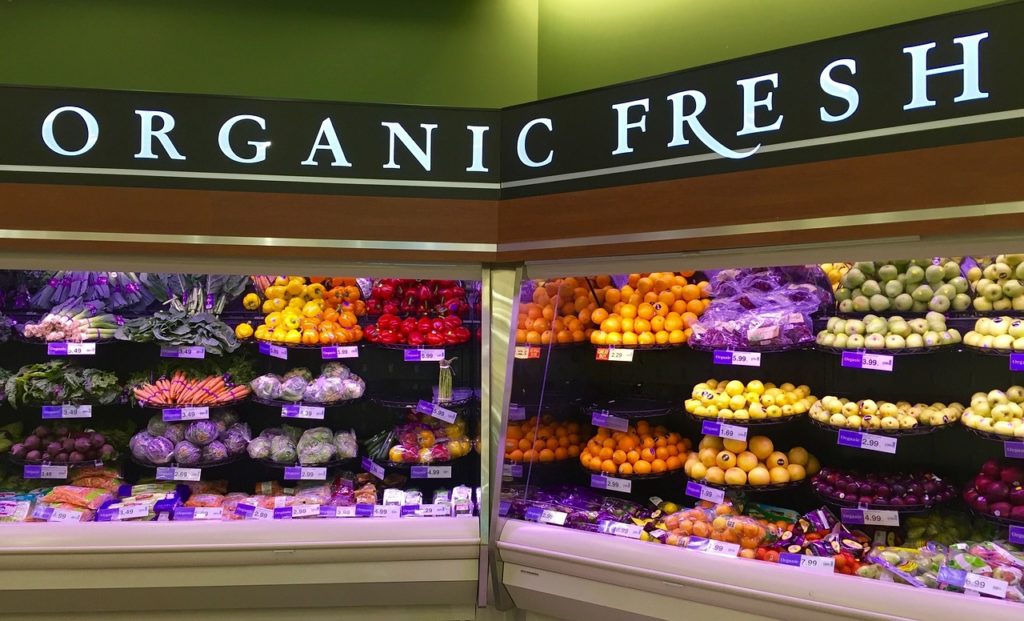Summary:
- What is Organic Food?
- Pros and Cons of Organic food
- Why eat organic food?
More and more people are wondering whether they should eat organic or not.
Indeed, if dietetics, fasting or diet can bring better well-being to our body, we can sometimes express doubts about our products’ quality and want to turn to organic food. A few questions often come to mind:
A few questions to ask ourselves:
- Is this one better for our health?
- Is its high price justified?
- How to find a point of sale?
Here is a short overview…
What is Organic Food?
How to differentiate an organic product from an ordinary product?
Organic food is made with ingredients from organic farming: fruits, vegetables, cereals.
For processed products – such as cookies or ready-made meals – they will have to contain a minimum of 95% of ingredients from organic farming to obtain the organic label.
A notified label can, therefore, recognize the organic product on its packaging.
It can be bought :
- either in a specialized store: distribution chains of organic products, health food stores ;
- or in a supermarket: in the department dedicated to “organic” products and marked in the store;
- or at certain trade shows dedicated to dietetics or organic products.
Organic food: obligation of the organic label
To obtain the organic label, a product must meet a certain number of criteria and meet precise specifications to ensure its quality. Thus, some international standards are issued by IFOAM, which is the International Federation of Organic Agriculture Movements.
There are various other organic labels for organic agriculture:
- USDA Organic Label | USDA
- Quality Assurance International (QAI)
- Nature’s International Certification Services
- EU Organic Certification
- SCS Global Certificate
The organic label meets strict standards and will be the guarantee for the consumer:
- for fruit and vegetables :
- they do not contain GMOs (genetically modified organisms) ;
- they have not undergone any chemical treatment: pesticides, synthetic fertilizers, nitrate ;
- the farms have been controlled, and the animals have not received growth hormones;
- no farm has been fed with a meal made from some animal carcass;
- the breeding conditions must be up to the standards (as seen above).
Pros and Cons of Organic food
Advantages of organic food
The main criteria that lead to organic consumption are :
- the assurance of having quality products and therefore healthier for health;
- their traceability by strict specifications controlled by certification bodies;
- respect for the environment.
Note: many articles have questioned the reliability of certification bodies. Studies have been conducted to compare the benefits of organic products on our health compared to conventional food. Still, it has not been scientifically proven that this type of food is better.
Disadvantages of an organic diet
- The cost is higher: this is due to more expensive means of production and more limited distribution networks ;
- the price is on average 20-30% higher for organic products than for conventional food;
- Conservation is less exemplary: most products keep less time because, by respecting standards and specifications, they use fewer preservatives;
- on the other hand, organic dry products can produce food moths quite quickly for the same reasons: it is, therefore, necessary to be more vigilant about their storage and conservation;
- points of sale do not always have sufficient stocks.
Why organic food?
It is noticeable that, globally, organic food is on the rise.
Very often, this craze goes with a common spirit:
- respect for the environment;
- concern for one’s well-being;
- eating balanced and healthy food;
- a healthy lifestyle including sport, yoga, thalassotherapy, etc…
This post put it simply to define organic food. Please, do not hesitate to comment below or request more info. We’ll get back to you!



Pingback: How to Take Homeopathic Medicines – Hello sites
Pingback: MSG: What Are the Health Risks? – Hello sites